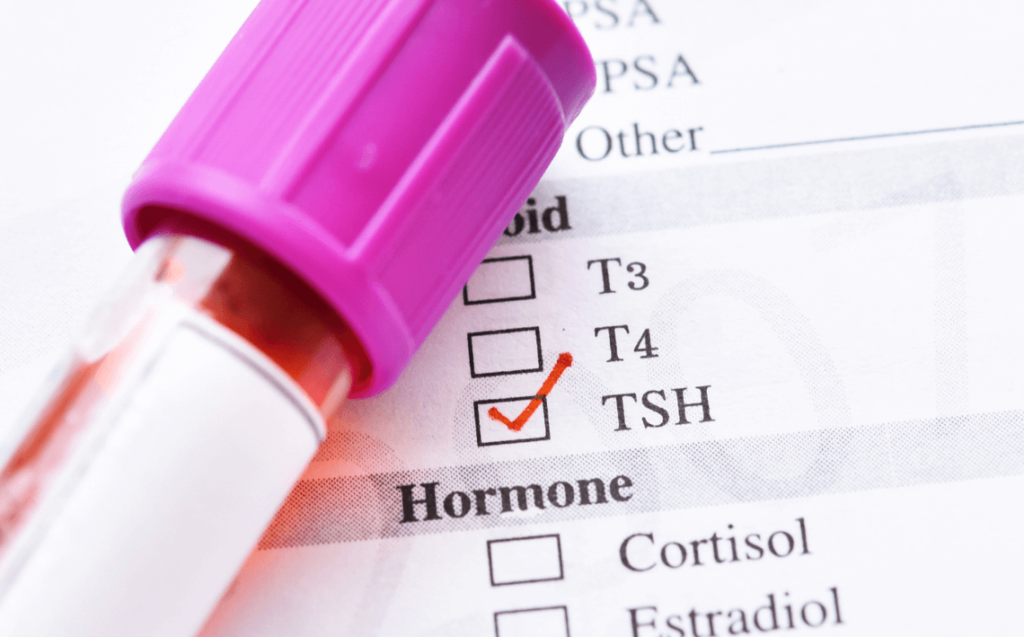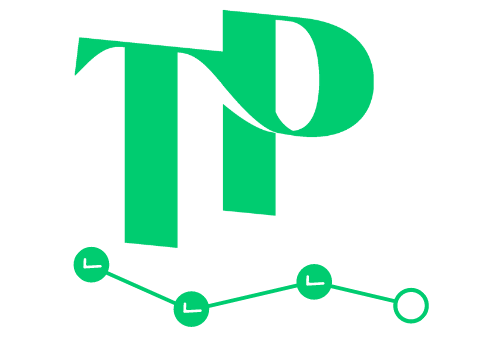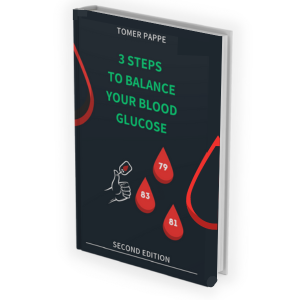
True meaning of TSH test
It’s a weird value to assess Thyroid status by. Still in some cases it can tell us something.
After being sent for a TSH blood test dozens of times during my life, I decided to understand what is behind that value, why it is less suitable for diagnosing the level of thyroid function, how it is related to the thyroid gland and what conditions it does help to diagnose.
Table of contents:
What is TSH?
TSH is a stimulating hormone and it is produced in the pituitary gland and not in the thyroid gland.
This is about a blood test that is routinely tested at health insurance companies. Over the years when my doctor would tell me that “I was sent for a thyroid blood test” I realized that he only sent me for a TSH blood test. To this day, there are debates regarding the question of how much TSH should be in the blood, the strict say not to exceed 1, while the HMOs set the upper limit at around 4. When I was sent for a TSH blood test, I did not know that the important values for evaluating thyroid function are the hormones that the thyroid gland produces: ( T4 (Tetraiodothyronine and (Triiodothyronine) T3.
To my community on Facebook: Thyroid gland – the wisdom of the masses.
If not TSH, what are the important tests to evaluate thyroid function?
To test the ability of the thyroid gland to produce hormones, it is useful to check values such as FREE T3, FREE T4 and TSH in the blood tests. The TSH is a thyroid stimulating hormone and as its name suggests (Thyroid Stimulating Hormone), it signals to the thyroid gland how many hormones it should produce and release. He knocks on the door and says “we need more hormones” or “we need to slow down because there are too many hormones in the blood”.
Everything starts in the hypothalamus. After the hypothalamus stimulates the pituitary gland with the help of the TRH hormone, the TSH hormone is secreted from the pituitary gland and it eventually reaches the thyroid gland. To complete a full panel of thyroid function, it is often also acceptable to test the TPO TgAb antibodies to diagnose, among other things, autoimmune diseases of the thyroid gland such as Hashimoto’s which I diagnosed myself with.
When can a blood TSH test be useful?
- When a hypothyroid patient supplements the thyroid hormones – a very low TSH can indicate that the patient’s thyroid gland is still able to function properly and is suppressed by the replacement of hormones (with the help of Levothyroxine, liothyronine or NDT supplementation). It is important for me to note that the TSH value alone is not always enough. To really know what’s going on behind the scenes, you have to ask – what caused the gland to reduce its function in the first place? There are quite a few situations in life where the thyroid gland will reduce its activity in response to some change in lifestyle. The thyroid gland, like the other glands in the endocrine system, is a reactive organ. An example of this is a situation of continuous malnutrition or a sharp loss of weight in which the body will react accordingly and do everything to prevent fuel for energy in order to lower the level of energy available in the body. In doing so, the body tries to slow down the inflammatory processes occurring in the body and above all not to deepen the deficiency. In such situations, sometimes the attending physician will suggest hormone treatment. I learned from my own experience that if it has already been decided to supplement hormones externally, it is advisable to choose a combined treatment of T4 and synthetic or natural T3 and not just T4. Another point I realized is that it is worth considering temporary hormone supplementation only in a situation where the body has reduced hormone production due to malnutrition. After that, the possibility of gradually stopping taking the hormones should be examined together with the doctor. Unlike a temporary change such as malnutrition, there are quite a few situations where the destruction to the gland is too deep and sometimes this means that the thyroid gland is no longer able to produce hormones in the amount required for normal physiological function, similar to the pancreas that stops producing insulin in type 1 diabetes.
- When your doctor wants to diagnose hypopituitarism – a condition in which the pituitary gland is underactive. The pituitary gland is a pea-sized gland located at the base of the brain and is responsible, among other things, directly and indirectly for the normal activity of the adrenal gland, the thyroid gland and the regulation of sex hormones. It also produces growth hormone and is responsible for storing oxytocin and vasopressin produced in the hypothalamus. As mentioned, if the pituitary gland does not secrete enough TSH, the production of thyroid hormones will decrease. When the pituitary gland does not produce enough ACTH, the amount of cortisol and DHEA produced may also decrease. These values must be checked in the blood tests together with the attending physician who will agree to check other values in addition to the TSH blood test.
In conclusion
The best advice would be to see a professional who treats the thyroid with holistic functional therapy and not just based on one TSH blood test. It is important to perform a full panel of the thyroid gland, including antibodies, and no less important – to refer to the symptoms. Symptoms of hypothyroidism include: weakness, fatigue, constipation, dry skin, disruption of the menstrual cycle, weight gain, intolerance to cold, changes in hair and hair loss, decreased libido, depression and decreased cognitive function that may manifest in memory disorders and vague thinking. The symptoms can appear all together, or only some of the symptoms can appear. When I approached my diagnosis at the time together with the attending physician we crossed the results of the blood tests together with the symptoms. Another important detail is that I made sure to repeat the blood tests at least twice on different days. Because hormones are dynamic values that rise and fall throughout the day according to the level of fatigue, seasons of the year, temperature, pressure, changes in weight and changes in diet, it is important to repeat the hormonal values in the blood.
Temporary or permanent changes in our life may also affect the rate of hormone production in the body. Beyond that, a part of a test like FREE T3 is a sensitive test and sometimes there are deviations in the result that vary from one laboratory to another. Due to all these reasons, it is recommended to repeat these tests over a certain period of time and not to rely on one test result.
If you identify with the symptoms mentioned above or even some of them and there is any doubt, you should contact your doctor or a professional.


*The information on this website is not intended to be a substitute for professional medical advice, diagnosis or treatment. The said information is intended for informational purposes only and stems from personal experience. The text is not intended to diagnose, treat or cure any specific disease or medical condition. Reviews and testimonials about nutrition, training and various health approaches represent individual experiences and what is stated on the site does not guarantee any results for your specific situation. Any choice of a specific way of eating or medical treatment according to a given situation should be made under the guidance of professionals qualified to do so.






